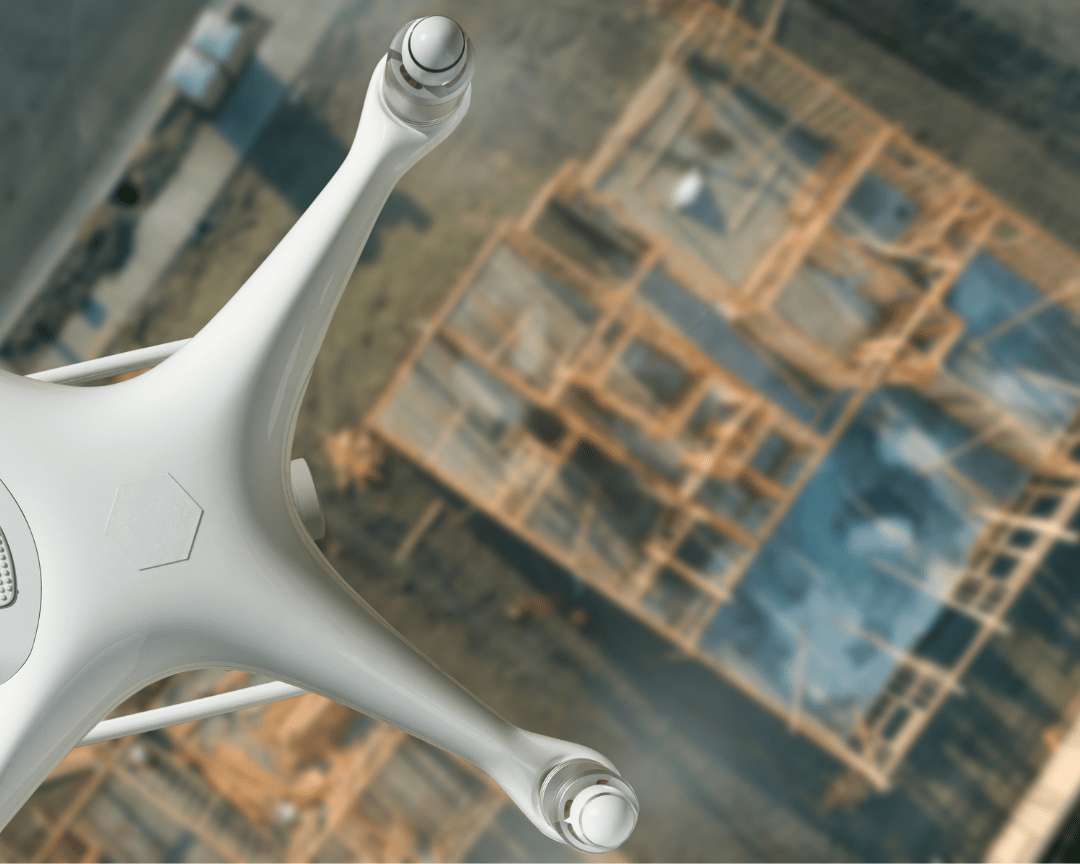Drone technology is building a better world for all of us. Literally! Drones in the construction industry are bringing a wide range of benefits and improvements that make job sites safer, more productive, and more effective.
At Drone Legends, we believe that educating the next generation about drone technology is important to cultivate impactful and positive technology use in children. Contact us to learn more about how our curriculums can create more classroom engagement while providing children with invaluable STEM skills.
From performance management to safety compliance and theft deterrence, these machines are quickly becoming essential to every job site. Want to learn more about the hard-working drones in the construction industry? Keep reading!
Drones for Progress Tracking and Communication
Drones can provide project managers, stakeholders, and clients with clear communication about the progress of a construction project. They do this by capturing high-resolution aerial footage which can often demonstrate unique perspectives and offer valuable insight into performance, structural safety, and more.
This same footage can also be used by the construction team for improved collaboration. Engineers, designers, and managers can communicate on progress and next steps while using the data provided to avoid mistakes and develop strategies for increased productivity.
Aside from productivity and performance management, drones can also help project managers on larger job sites to keep track of equipment. With a quick flyover of the job site, drones can eliminate the use of manual tracking and logging of equipment locations in spreadsheets and other paper documents.
This also allows improved insight into the condition of different equipment, which could decrease the risk of issues resulting from equipment malfunctions including injury and repairs.
Drones for Preconstruction and Site Planning
Before construction can begin, engineers and project managers must collect information about the site. Drones can provide support for topographic mapping and land surveys that lay the foundation for a successful project.
There are quite a few benefits of drone use in preconstruction and planning. Here are a few:
- Increased ability to avoid expensive mistakes
- Better prevention of incompatible designs
- Cost-effective alternative to a traditional topographic map
- Decreased time spent in the planning phase
- Improves accuracy of plans and measurements
In addition to the benefits of using drone technology for site mapping and planning, the images and footage obtained can also be used to create 3D models of the proposed project. This can result in fewer mistakes and major cost savings.
Drones for Quality Assurance and Control
By offering a unique vantage point for inspection, project managers and inspectors can gain a better understanding of the quality and progress of construction.
The use of drones results in a decreased need for heavy machinery, scaffolding, and other machines required to complete quality assurance in hard-to-reach areas of a building. Using cameras and sensors, drones can provide data and footage that keeps management up-to-date on progress and quality.
Here are some of the functions of drones for quality assurance and control:
- Thermal sensors can detect heat and cold to determine if there are any leaks, cold spots, or electrical concerns.
- Cameras can provide high-resolution images that can be analyzed by a team of professionals to determine if more inspection is required.
- Flight agility provides a comprehensive understanding of the structural integrity of hard-to-reach areas and buildings such as bridges and towers.
In addition to making quality inspections easier and more effective, drones can also decrease the time spent conducting monitoring processes, maintenance, and assessments of older structures as well. This will improve the overall safety of such structures while also allowing professionals to be more productive.
Drones for Job Site Risk Assessment and Mitigation
It is estimated that annual losses resulting from construction site theft cost contractors in the US approximately one billion dollars, an average of six thousand dollars per incident.
Aside from more comprehensive risk assessments about the overall security of a site, there are other ways that drones can improve overall security and safety for contractors and their equipment. One of these ways is surveillance.
Theft and vandalism are major issues in the construction industry and can result in significant financial damage for both small and large construction companies. By employing drones as a security strategy, project managers can improve their chances of recovering stolen property and potentially deter crime on their job sites.
Another safety benefit of drones in the construction industry is increased contractor safety. Falls and accidents are among the leading causes of death and injury in the construction industry.
In order to prevent falls and other incidents, drones replace the need to complete risky activities such as climbing unsteady structures, walking on elevated platforms, and navigating hazardous locations.
They can also conduct affordable drone compliance monitoring and site inspections. This can make a major difference in the number of incidents that occur on a job site.
Drone Technology in the Construction Industry
There’s no doubt about it: drone technology is revolutionizing the way the construction industry works. By improving safety, security, productivity, project management, and building quality, nearly every sector of construction can be supported with the use of drones.
While improving the construction industry, drones are helping us build a better future. Drone Legends is supporting that future as well. Our goal is to provide the next generation with a comprehensive and practical understanding of this exciting and innovative technology.
Contact us to learn more about how our technology-focused curriculums can benefit children of all ages in your local school, afterschool program, or summer camp.




